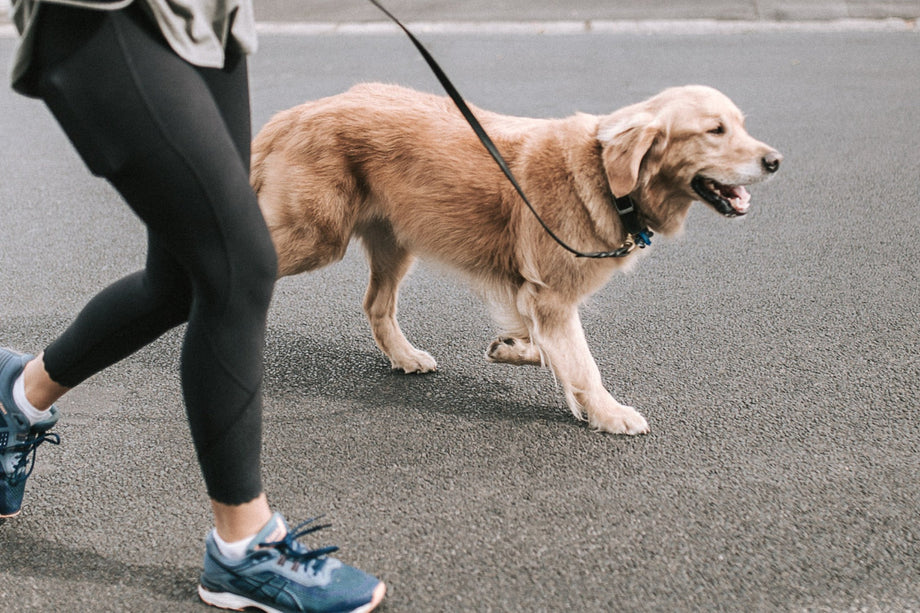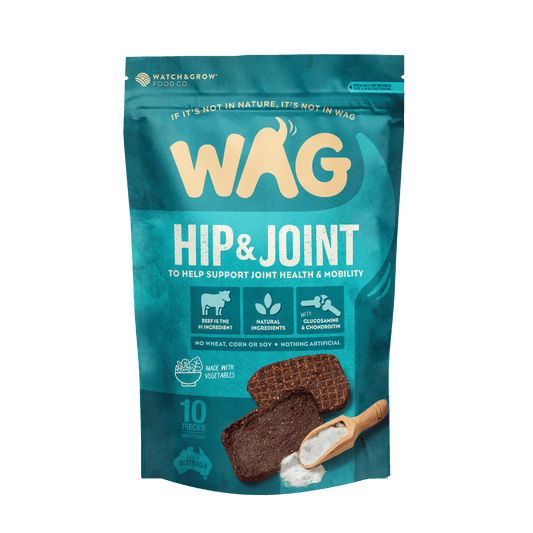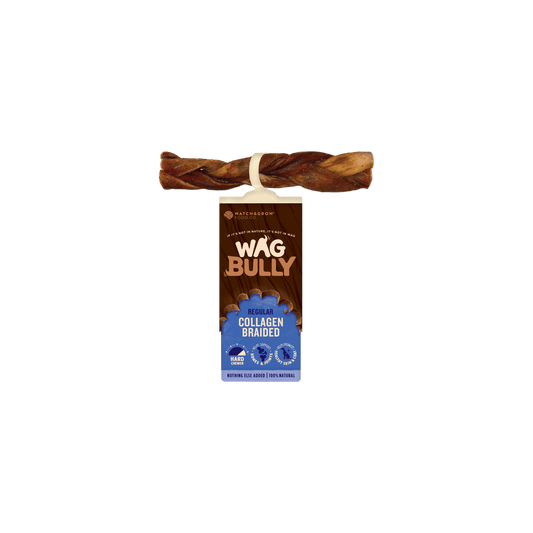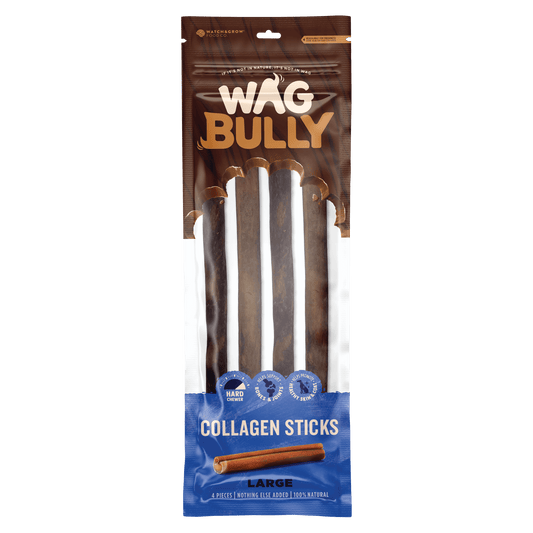As dog owners, we all want our furry friends to live happy, healthy lives, no matter their size, breed or age.
One aspect of dog health often overlooked is their joint health. Joint health for dogs is vital in ensuring your pooch can live a healthy and agile lifestyle, without pain, discomfort or limitations to their mobility.
As a pet owner, there are things we can do to support the joint health of our dogs, and ensure the risk of joint pain and joint issues are minimised.
The importance of joint health in dogs
Joint health in dogs plays a role in a dog's overall physical and emotional wellbeing. Good joint health enables a dog to do all the things they enjoy - jump, run, play, sit, stretch, and climb. Good joint health means a dog can live free of pain and discomfort, without restriction to their mobility and movements.
Joint health in dogs plays a direct part in the overall energy, happiness and quality of life for our furry friends.
A dog's joints get put under a lot of general wear and tear in the everyday life of your pooch. Ensuring the joints are in good shape is vital for allowing your dog to live their best life.
Common symptoms of joint issues in dogs
If you're worried your dog might have joint problems, there are some common symptoms that may indicate an issue:
- Limping or stiffness when walking
- Slipping when moving about
- Lethargy or low energy
- Depression
- Irritability
- Loss of appetite
- Slow movement
Common causes of joint problems in dogs
These are some common joint problems found in our canine companions;
Degenerative joint disease
Degenerative joint disease, such as arthritis or cruciate ligament issues, are among the most common causes of joint problems in dogs. Degenerative joint disease is caused by the wearing down of cartilage or tendons within the joint/s, usually after long-term use. These sort of injuries cause joint inflammation, which leads to pain and discomfort for your furry companion.
Developmental joint issues
These are joint issues present from birth, or they may appear as your dog grows. Developmental joint issues usually stem from genetic issues within the puppy's family line. Some breeds, such as German Shepherds and Labradors, are predisposed to joint problems.
Developmental joint issues can lead to more serious conditions down the line, such as hip dysplasia or elbow dysplasia.

Preventing dog joint problems
There are things that every dog owner can do to help prevent joint injuries for their pooch, and support canine joint health.
Exercise
Healthy dogs are active dogs. Exercise helps strengthen the muscles surrounding the joints, lessening the load the joints have to carry. Exercise also helps your dog stay within a healthy weight range, as overweight dogs are at an increased risk of joint injuries. If your dog is carrying extra weight, it increases the strain on their body.
Exercise is a good preventative measure for canine joint problems, but it's also a great treatment option for helping dogs with arthritis or other joint concerns.
Diet
Diet plays an important role in weight management, but can also help prevent inflammation within the body. A healthy diet is crucial for overall dog health. In particular to joints, foods that are high in fatty acids (such as salmon and mackerel) have anti-inflammatory properties.
Avoid high-impact activities
While activity and exercise is important, repetitive high-impact activities (such as jumping up and down from a high bed) or high levels of activity (such as frequent running and over-exercise) can cause extra wear on the joints over time. It’s especially important to avoid overexertion for puppies and young dogs, while their joints are still developing and are more vulnerable to injury.
High impact activities are also not recommended for dogs diagnosed with conditions such as Luxating Patella, which refers to kneecaps which pop out of their usual location, usually their hind legs.

Joint supplements
Senior dogs, big dogs and breeds with a higher risk of joint issues can benefit from the right joint supplement. However, it's not only older dogs that benefit from supplementation for joint health.
Nutritional supplements can help prevent and manage joint inflammation in your pooch. Dog joint supplements such as glucosamine hydrochloride can help ease joint pain and support your dog's recovery from joint damage or injury. They are especially beneficial for large breed dogs that have additional weight bearing on their joints.
Joint supplements containing chondroitin sulphate may be a good fit if your dog is suffering from damaged cartilage, or needs additional support for the cartilage of their joints.
Always check with your vet before supplementing your dog's diet. A vet can help you find the right supplement for your pet, taking into consideration their needs and any other health conditions.

Regular vet check ups
Joint care is an essential part of dog ownership. The best person to advise on joint care for your doggo, including the right supplements, pain relief options and other pet health advice, is your vet.
Make sure you schedule regular vet check ups for your dog's overall health and wellbeing, and if you have any concerns about your dog’s joint health, or if they start to show any signs of joint issues, book an extra appointment with your vet.
A trip to the vet can be a nerve-wracking experience for your furry friend. Make sure you offer plenty of praise and treats as a reward following an appointment with the vet.
Dog treats for joint health
Offer only natural dog treats without any nasties to ensure your dog is getting the very best. Products designed specifically with joint health in mind, such as WAG’s new Hip & Joint Functional Jerky (enriched with joint-loving turmeric and glucosamine), are a great way of rewarding your good doggo while also supporting the health of their joints. Natural dog treats such as Kangaroo Tendon Caps are packed full of glucosamine, Omega 3 and protein, making them a nutritious and wholesome snack.

Here at WAG, we pride ourselves on our range of natural dog treats to help support the physical health and overall wellbeing of your four-legged companion. Shop the range online today, or at your local pet specialty store.
Shop the Recipe
WAG Team
Up Next
Decoding Doggy Behaviour: Exploring Odd and Funny Dog Habits






